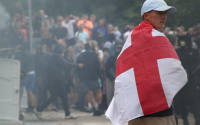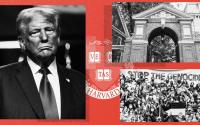13 November 2005Alex Duval Smith
Riots spread to the centre of a French city for the first time last night as police clashed with youths in Lyon.
Officers in the city's famous Place Bellecour moved in with tear gas to disperse rioters vandalising vehicles. Police said they had been attacked by groups brandishing bottles, stones and dustbins.
The confrontation, which led to two arrests, happened shortly after the local prefect had announced a weekend curfew on minors.
Meanwhile, Paris was under siege yesterday as thousands of police guarded key tourist sites such as the Eiffel Tower and the Champs-Elysées and enforced emergency laws, including a ban on groups of people gathering.
The capital's prefect of police, Pierre Mutz, said the record deployment of some 3,000 officers was in response to a barrage of text messages and weblogs thought to have come from youths linked to the previous 16 nights of unrest in the city's suburbs. They called for 'the biggest riot ever seen'.
'The police and gendarmes have been ordered to be very firm,' said Mutz. 'It's time to say, "That's enough" to those who might be envisaging provoking riots in Paris.'
While arson attacks on buildings and cars were reported to have declined around Paris, violence in other cities - including Toulouse, Dunkirk, Amiens and Grenoble, remained intense.
Elsewhere across France, mayors organised silent marches to call for peace on troubled housing estates. About 350 people marched in Stains, in the suburbs of Paris, and up to 600 marched in Toulouse. In Montpellier, a 500-strong march was organised by members of a mosque in the troubled area of La Paillade.
In Paris, police were most visible on the railways serving suburban trains - at Gare du Nord and Les Halles - and around the Champs-Elysées.
Under the terms of the 1955 state of emergency law, the authorities have the right to ban 'any meeting of a nature likely to incite or maintain disorder on the street or in public places'. The offence carries a maximum punishment of two months in jail and a fine of €3,750 (£2,520).
Police attempting to seal central Paris were helped by bylaws in the suburbs, including a curfew on unaccompanied minors in Seine-et-Marne and a ban on the sale of petrol in jerry cans - an attempt to prevent anyone making Molotov cocktails.
The ban on gatherings, which took effect yesterday at 10am and expires at 8am today, is coupled with a state of emergency and covers all of Paris within the ring road.
The only demonstration permitted in the capital yesterday was staged at Saint-Michel by anti-racism groups protesting against the emergency laws and the 'colonial mentality' of the government. A march with a similar theme was held in Toulouse, the scene of some of the worst violence outside Paris.
So far, the clashes with police and attacks on cars and buildings have been the work of small gangs who have communicated by text message and travelled by scooter and in stolen cars.
Today, the National Front leader Jean-Marie Le Pen is due to appear on RTL radio in advance of a demonstration in central Paris by his supporters tomorrow. Many believe the riots have played into the hands of extremists such as Le Pen.
http://observer.guardian.co.uk/print/0,3858,5332245-102275,00.html






